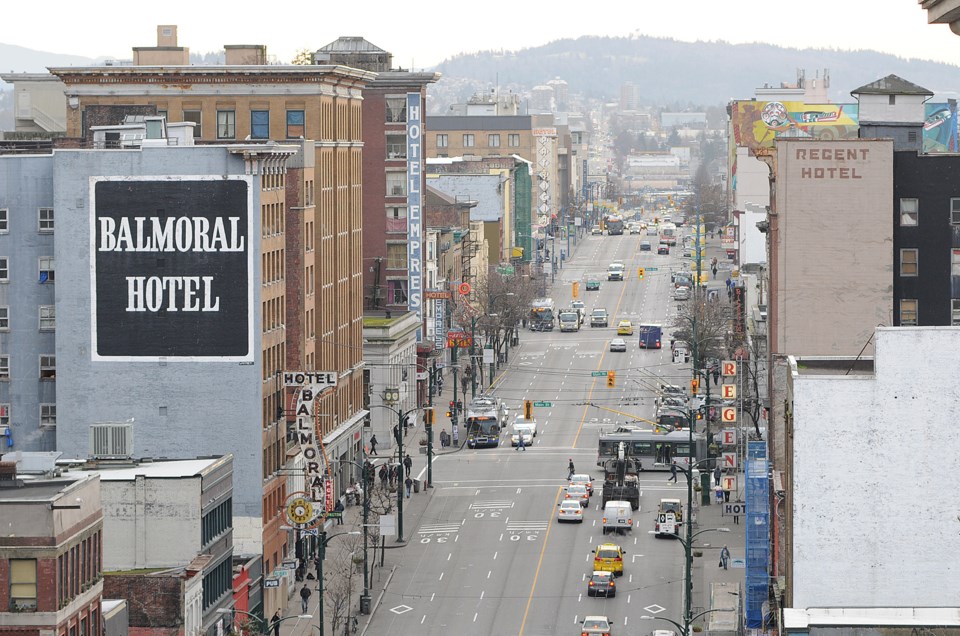Whatever form of revitalization plan city council decides to implement in the Downtown Eastside, Vision Vancouver Coun. Andrea Reimer stated the obvious at Wednesday’s public meeting at city hall: Not everybody is going to be happy.
Reimer’s assessment came on the first day that 126 speakers lined up to tell council what they thought of the proposed $1 billion, 30-year plan to revitalize the city’s poorest community.
“If anyone comes today and says they agree with every part of it, I will be very surprised,” Reimer said.
Planning director Brian Jackson opened the meeting with another conclusion that supporters and opponents acknowledged about the plan: it’s complicated and probably the most complex of its kind in the city’s history.
The plan calls for more social housing, business spaces, community facilities, preserving heritage, adding more parks and open spaces and upgrading transportation infrastructure.
The majority of the plan’s cost — $820 million — is directed at housing and relies heavily on senior levels of government, nonprofits and developers to contribute $770 million over the next 30 years.
Resident Herb Varley of the “low-income caucus” told council of the deplorable conditions in much of the housing in the Downtown Eastside, particularly the single-room-occupancy hotels that serve as cheap accommodation but are often rodent-infested and unsafe.
“If we really want senior levels of government to reinvest in a social safety net, we must show them the depths of despair— the depths of poverty that people live in,“ said Varley, who delivered two petitions to council with 6,000 signatures asking for the creation of a “social justice zone” and to “control business gentrification.”
Several speakers, including Victoria Bull, requested that an aboriginal healing centre be built as part of the plan. Aboriginal people in the Downtown Eastside, many of whom are homeless, overrepresent people with addictions and mental health issues.
“I have a dream about this beautiful aboriginal healing and wellness centre in the Downtown Eastside,” said Bull, a longtime resident who is raising her 10-year-old granddaughter. “This would be for people who are not too pleased about going into treatment centres.”
Architect and developer Michael Geller stirred up many of the residents in the council chambers with his criticism of the plan’s proposal to create a no-condo zone in a roughly 16-block area around Oppenheimer Park and along a section of East Hastings.
“I do not believe that banning condominiums will achieve the goal of creating new social housing without the need for public subsidies,” Geller said. “Rather than serve as a catalyst for East Hastings Street, I worry that this could prevent the revitalization that I think we all want to see.”
Housing Minister Rich Coleman told the Courier last week that his government will not contribute money to the plan. The federal government has left the provincial government to decide on what it does with federal money for housing. Reimer, however, has said the city can deliver a significant number of housing units over the next 10 years, without investment from senior levels of government.
Henry Tom of the Vancouver Chinatown Revitalization Committee also expressed doubts about the plan for the Oppenheimer district, which calls for new buildings to have 60 per cent social housing and 40 per cent rental.
“This narrow focus has led to a proposal that seems to reserve the Oppenheimer district for social and rental housing and to constrain commercial activities,” Tom said.
Council also heard from representatives at the Urban Development Institute and Vancouver Heritage Commission, who said they support the plan. More speakers are scheduled to address council Friday at 4 p.m.



